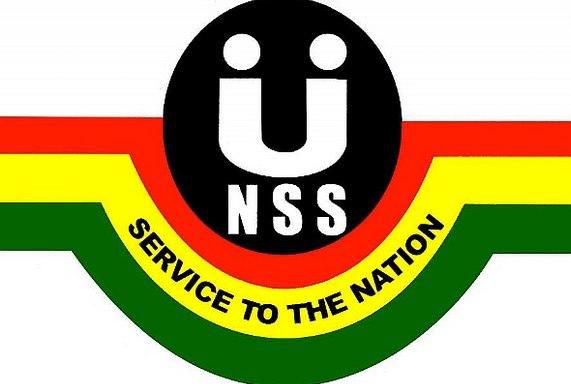How to Easily Find a Job After National Service – A Simple 3-Month Strategy
)
Congratulations on completing your National Service. You have gained hands-on experience, built valuable skills, and proven your ability to deliver results in real-world conditions. Now comes the next step, which is turning that experience into a meaningful career.
While many graduates struggle with the transition from service to full-time employment, your background gives you a unique advantage.
Employers value the discipline, leadership, and adaptability that service instils. With the right strategy, you can position yourself ahead of the competition and secure a role that matches your skills and ambitions. This guide outlines a simple three-month plan to help you land your ideal job with confidence.

Why National Service Graduates Are Highly Valued
Before diving into the strategy, it is important to recognise your unique strengths. National Service graduates bring qualities that recruiters find compelling:
Proven discipline and reliability – You have shown commitment to long-term responsibilities.
Leadership under pressure – Whether leading a project or managing challenges.
Cultural competence – Experience working with diverse groups and adapting to new environments.
Problem-solving ability – Tackling real-world issues with practical solutions.
Strong work ethic – A record of managing demanding schedules and responsibilities.
The 90-Day Job Landing Strategy
)
Phase 1: Foundation Building (Days 1–30)
Week 1–2: Skills Inventory and Market Research
Start by conducting a thorough skills audit. Document everything you did during service, such as:
Project management
Community outreach
Data collection and analysis
Training and mentoring
Public speaking
Social media management
Crisis intervention
Grant writing
Next, research your target industries. Use platforms like LinkedIn, job boards, and industry reports to identify:
The most in-demand skills
Job titles aligned with your experience
Salary ranges in your region
Growing companies in your chosen field
Week 3–4: Personal Branding Overhaul
Transform your service experience into professional achievements. For example:
Instead of: “Helped people in the community”
Say: “Delivered direct services to 150+ community members, boosting programme participation by 35%.”Instead of: “Worked with kids”
Say: “Designed and implemented educational programmes for youth aged 8–18, improving literacy by 20%.”
Phase 2: Strategic Networking (Days 31–60)
)
The Alumni Advantage
Your fellow service alumni are powerful resources. They can provide:
Internal referrals (which account for 30–50% of all hires)
Industry insights
Interview preparation tips
Salary negotiation advice
Action Steps:
Join alumni groups on LinkedIn and Facebook.
Attend networking events, both virtual and in-person.
Reach out to five alumni each week in your target field.
Offer assistance before requesting favours.
The Informational Interview Strategy
Reach out to professionals in your desired industry for short, informal conversations. This is not about directly asking for jobs but about relationship-building.
Sample message:
“Hi [Name], I recently completed National Service and am transitioning into nonprofit management. I admire your work at [Company]. Would you have 15 minutes to share your insights on trends in the field? I am happy to fit your schedule.”
Phase 3: Application Acceleration (Days 61–90)
)
The Targeted Application Approach
Quality beats quantity. Instead of sending out 50 generic applications, focus on 10–15 tailored ones. For each role:
Customise your CV and cover letter.
Research the organisation thoroughly.
Connect with current employees via LinkedIn.
Resume Optimisation Techniques
Use the C.A.R. Method (Challenge, Action, Result) to present your achievements.
Example:
Challenge: “Low youth engagement in after-school activities.”
Action: “Created interactive STEM workshops and mentorship programme.”
Result: “Increased participation by 40% and boosted academic performance.”
Power Phrases for Service Experience:
“Managed cross-functional teams of X volunteers.”
“Raised $X through grant writing and donor outreach.”
“Improved programme efficiency by X%.”
“Trained and supervised X staff and volunteers.”
Transitioning into Different Sectors
Nonprofit Sector
Highlight mission alignment and your operational experience. Target roles such as programme coordinator, development associate, or community engagement specialist.
Corporate Social Responsibility (CSR)
Emphasise your understanding of community impact. Look for CSR coordinator or sustainability roles.
Government
Stress your ability to navigate bureaucracy. Positions include programme analyst, policy researcher, or community development officer.
Education
Leverage your experience with diverse learners. Target student services or curriculum development roles.
Healthcare/Social Work
Highlight your cultural competence and experience with vulnerable groups. Consider roles like patient navigator or community health worker.
Salary Negotiation for Service Graduates

Do not undervalue your contribution. Research industry benchmarks using PayScale and Glassdoor. During negotiations, link your service achievements to professional skills. Beyond salary, negotiate for benefits such as flexible work, professional development funds, or tuition reimbursement.
Overcoming Common Job Search Challenges
“I don’t have enough experience.”
Focus on transferable skills and measurable results.“My service doesn’t relate to my target field.”
Emphasise competencies such as project management, adaptability, and problem-solving.“The job market is too competitive.”
Remember, your service experience sets you apart with real-world impact.
Interview Success Formula
)
Before the Interview:
Research the organisation’s mission and recent news.
Prepare stories using the STAR method (Situation, Task, Action, and Result).
Develop thoughtful questions about culture and growth.
During the Interview:
Speak with confidence.
Use metrics to back your claims.
Show enthusiasm for the mission.
Enquire about career progression.
Thriving After You Land the Job
First 30 Days: Build relationships and learn systems.
First 60 Days: Deliver quick wins and join professional associations.
First 90 Days: Propose initiatives and prepare for performance reviews.
ALSO READ; 5 Ways Money Affects Romantic Relationships
Final Thoughts
)
Completing National Service proves your resilience, adaptability, and leadership. You did not just serve your community, you built a professional toolkit that employers value. By applying the same persistence and strategy that carried you through service, you can secure a fulfilling career. The right opportunity is not just possible, it is within reach.
)

)
)
)
)
)
)
)
)
)